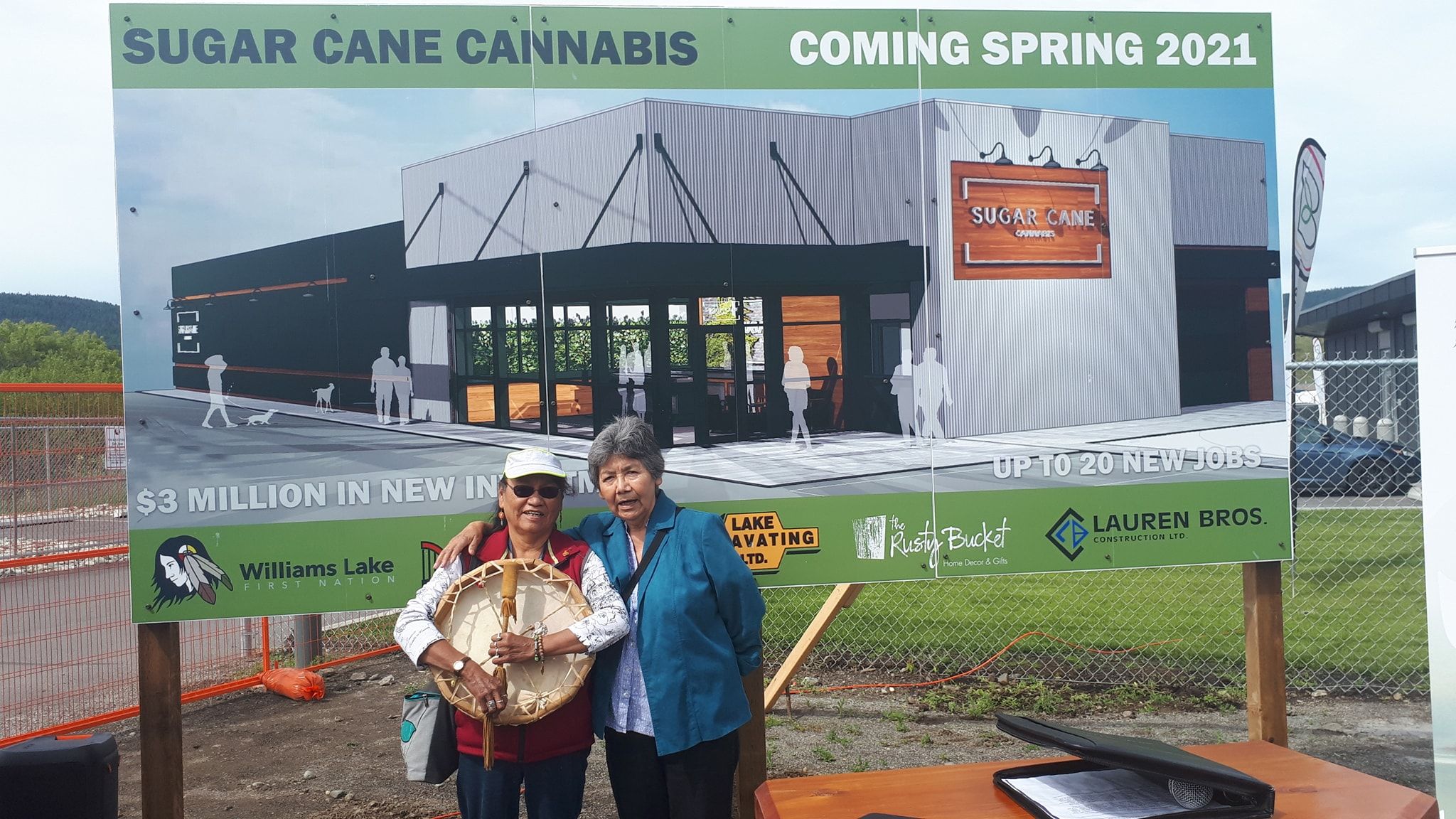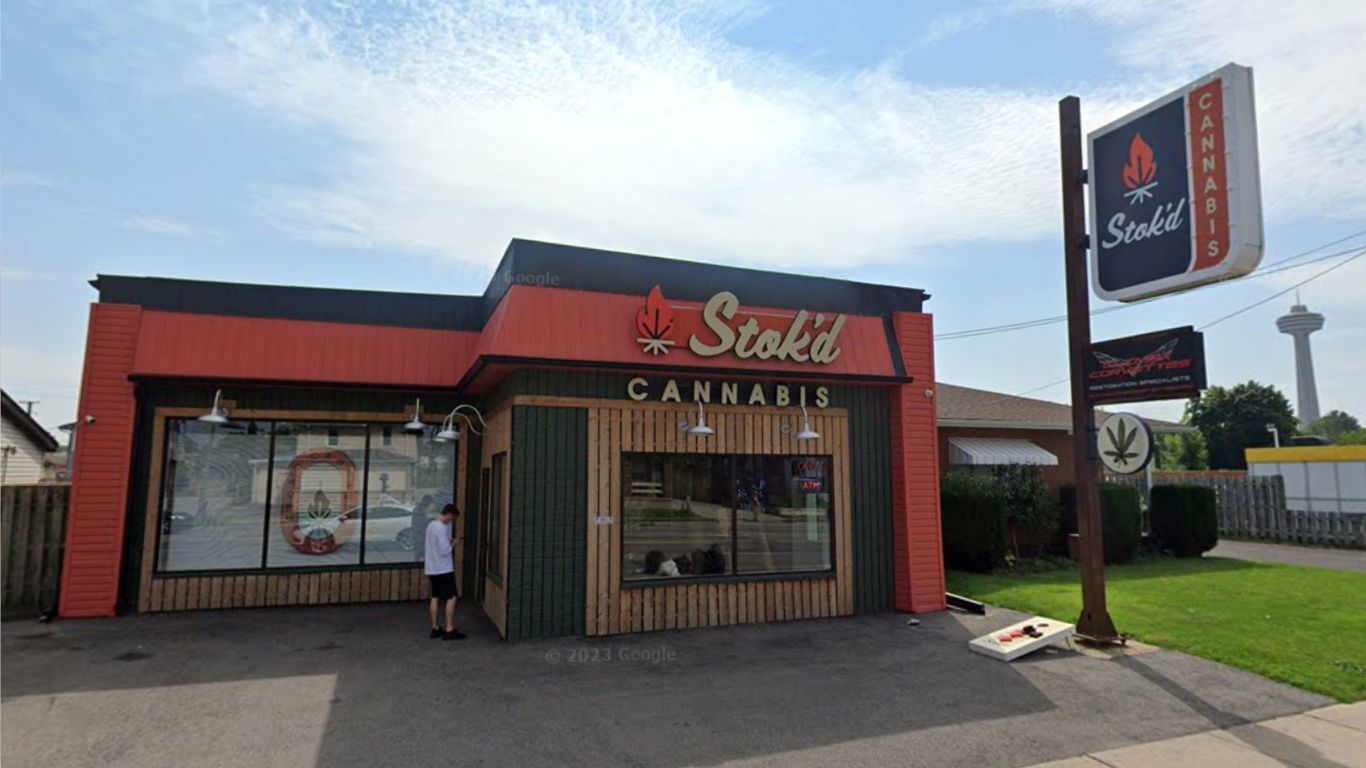
The BC government announced today a first of its kind government-to-government agreement with the Williams Lake First Nations to support the community’s efforts to operate cannabis farm-gate in the province.
The announcement, an agreement under section 119 of BC’s Cannabis Control and Licensing Act, is the first of its kind in Canada and will allow the Williams Lake First Nations (WLFN) to sell products directly from their facility, once fully licensed by the federal and provincial governments, says Williams Lake First Nation Chief Willie Sellars. The current expected completion date for the facility is 2021.
That could be as soon as next year, well before the target date of 2022 for farm-gate sales laid out by the province in another announcement yesterday. It could also include seven other retail locations across the province. This would be under the Unity Cannabis brand, which Chief Sellars says should be announced later this week.
“Next year at this time, once we have our license from Health Canada, this agreement will give us the ability for farm to gate out of that store,” Sellars confirmed with StratCann. “We’re also going to have the ability to open seven more stores. The agreement entails that we can open eight total retail stores as long as we have the approval of the local municipal governments.”
Earlier this year, the BC Government announced a $500,000 grant for the Williams Lake First Nation’s micro cannabis facility, Sugar Cane, as part of nearly $14 million to support development and recreational opportunities across rural BC.
Section 119 allows the BC government to enter into agreements with an Indigenous nation with respect to cannabis. If the agreement relates to cannabis sales, the government may only enter into the agreement with the Indigenous nation jointly with both the minister responsible for the administration of the Cannabis Distribution Act, and the Minister of Finance. Currently, the minister responsible for the administration of the Cannabis Distribution Act is Minister of Public Safety and Solicitor General Mike Farnworth.
“Today’s announcement demonstrates that by working together we can find solutions that allow the Province and Indigenous Nations to achieve our individual and shared goals with respect to cannabis legalization,” said Mike Farnworth, Minister of Public Safety and Solicitor General.
“WLFN is excited to conclude this historic agreement with the Province of British Columbia,” said Williams Lake First Nation Chief Willie Sellars in a government press release. “We have expressed a desire to have a government-to-government arrangement around our participation in the cannabis industry for several years and it is gratifying to finally formalize this agreement. We’re particularly excited about being the leaders in farm-gate cannabis sales. The WLFN craft cannabis farm-gate facility that is currently under construction will create jobs and stimulate tourism and represents a significant boost for the region’s economy.”
The Band estimates the total cost of the new facility, which will house both a 2,100ft2 (200m2) micro cultivation and production facility, and a retail outlet for “farm-to-gate” sales of the facility’s products, will be around $2-2.5 million. The Band broke ground on the facility in June.
Kirk Dressler, an Economic Development Contractor with the WLNF Economic Development team says that in addition to breaking ground on the new facility, Sugar Cane will apply for a federal micro cultivation and processing licence from Health Canada once the facility is complete, utilizing the federal cannabis regulator’s Indigenous Navigator Service.
“Health Canada has expressed a great deal of enthusiasm about this project,” said Dressler. “Before we headed into this pandemic, they were actually going to send their Aboriginal group to engage with us to kick off the licensing process. They have been emphatic that we don’t need a consultant and that they want to see this go as quickly as possible and make it a success. I think there are a lot of eyes on this. Obviously the province is heavily invested, the federal government wants to make sure that it’s a success, and so we’re optimistic that we won’t run into any significant problems with the licensing process.”
Dressler says the goal with the property will be to have the new Sugar Cane building house their micro cultivation and processing licenses, as well as their farm gate retail store specifically for Sugar Cane products. They plan to then transition the neighbouring Indigenous Bloom retail store to a fully licensed private cannabis retailer through the province’s licensing program. The new retail outlet would be rebranded as Unity Cannabis.
Ultimately, he says he hopes it could be a tourist draw for the area that other communities, including other First Nations, can also benefit from.
“I think it will be a model that everyone will be watching, particularly First Nations. It’s super cool that we are creating a template that other First Nations can potentially follow and pave the way for more of these (businesses) and more of an experience around cannabis.
Editor’s Note: This story has been updated to include comments from Chief Willie Sellars.











